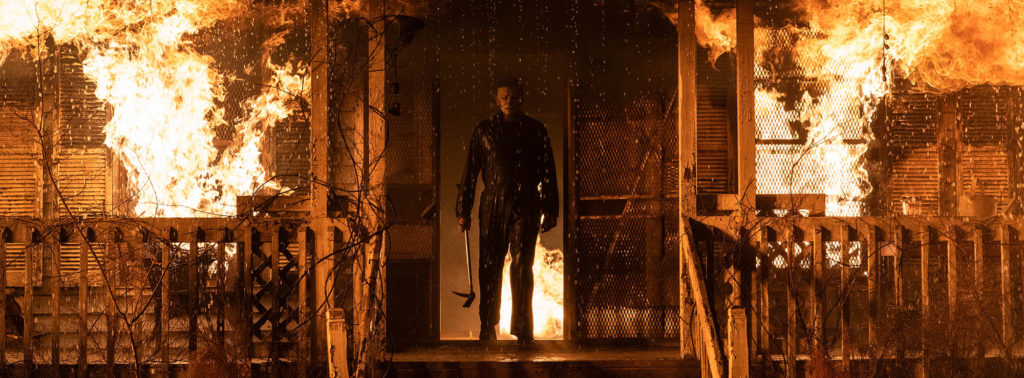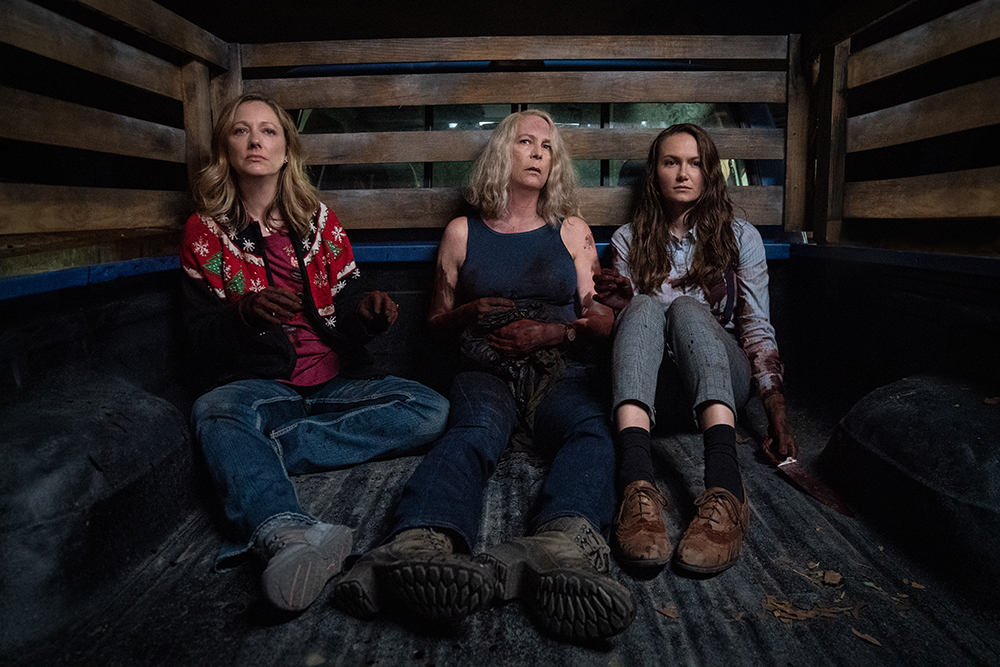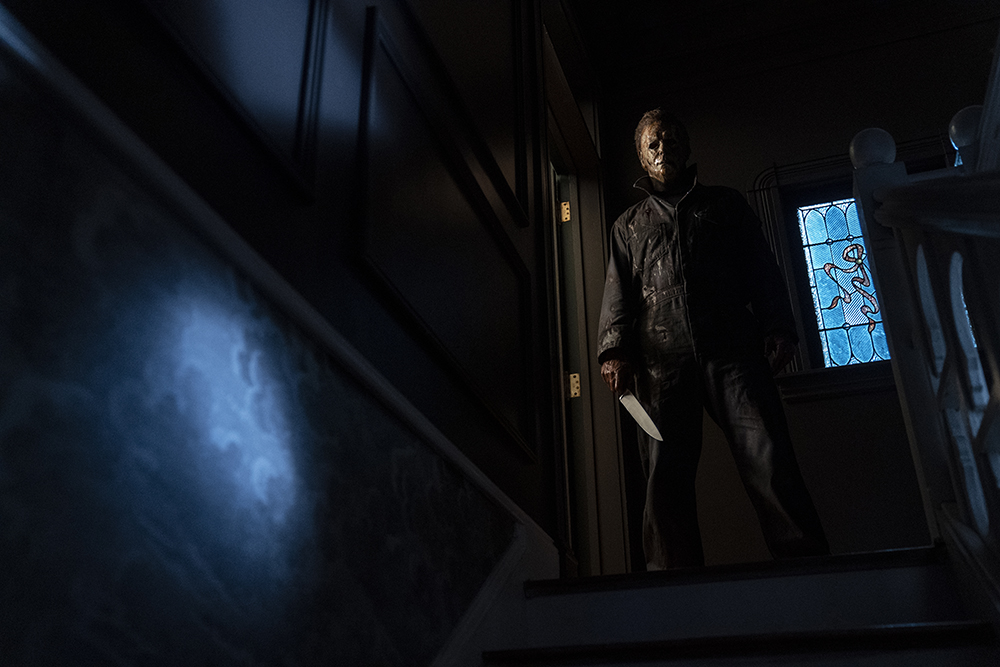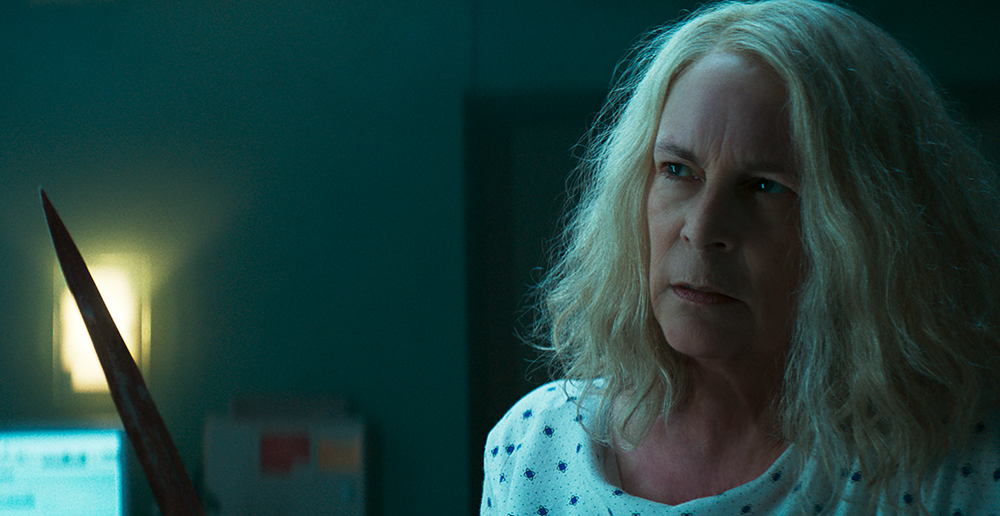
In 1978, John Carpenter and co-writer Debra Hill would create a slasher film that would forever change the face of modern horror. While Carpenter and Hill’s original Halloween was by no means the first film to present audiences with a knife-wielding maniac, having been predated by the likes of Tobe Hooper’s Texas Chainsaw Massacre, its distinctive style, and the addition of a haunting soundtrack which Carpenter himself had scored, would undoubtedly set the bar for every other slasher-horror film that would follow.
In 2018, director David Gordon Green, in collaboration with Blumhouse Studios’ Jason Blum, set out to honour Carpenter’s original classic and created a new film that retroactively ignored all other Halloween sequels and established a new timeline set 40 years after the events of the original. Luring Hollywood mega-star Jamie Lee Curtis back to reprise her breakout role of Laurie Strode, 2018’s Halloween was a run-away success earning over $250 million in worldwide box office and becoming the highest-grossing entry in a fan-favourite franchise spanning across four decades.
Ahead of the second film in Green’s planned Halloween trilogy, Halloween Kills, Supanova was lucky enough to participate in a series of round-table interviews with Curtis, Green, Blum and the rest of the cast. Set just minutes after the events of the 2018 film, Kills picks up with Curtis’ Laurie seriously injured and Michael Myers trapped in her burning house. As fans know, however, evil does not die quite so easily.
 Yet as successful as this new trilogy is, returning to the role of Laurie Strode was not something that Jamie Lee Curtis ever saw herself doing.
Yet as successful as this new trilogy is, returning to the role of Laurie Strode was not something that Jamie Lee Curtis ever saw herself doing.
“The last thing in the world I thought I would do is another Halloween movie,” Curtis explained. “I was perfectly happy doing the work I was doing. I was in the mountains where I live, and the phone rang and it was Jake Gyllenhaal on the phone, who is my godson. He said, ‘My friend David would like to talk to you about a Halloween movie.'”
“I read the script and called him and said, ‘Yep, let’s go.’ And now here we are five years, you know, four years later, and two movies under our belt and one to go. It’s been extraordinary.”
In addition to Anthony Michael Hall stepping in to tackle the role of Tommy Doyle (previously played by Brian Andrews in the original film and Paul Rudd in Halloween: The Curse of Michael Myers), Halloween Kills also features Nancy Stephens, Charles Cyphers and The Real Housewives of Beverly Hills’ Kyle Richards.
Richards, who reprises her role of Lindsey Wallace, one of the children Laurie saves in the original film, says that while she loved being given the opportunity to be on set with “all these talented people”, she admitted that filming wasn’t all smooth sailing.
“The biggest challenge for me was this scene where I was being chased by Michael Myers,” Richards revealed. “And I ended up in a swamp. And I had been forewarned by the director that there were alligators there. And that they were going to try to keep them away from me and to be on the lookout for them. And then I found out once I got on set that night, that there were also snakes.”
 Where 2018’s film was very personal, focusing on the trauma the events of the original movie had inflicted on Curtis’ character and three generations of her family, this new entry in the franchise broadens the focus and examines the impact of Michael’s actions on the broader community of Haddonfield.
Where 2018’s film was very personal, focusing on the trauma the events of the original movie had inflicted on Curtis’ character and three generations of her family, this new entry in the franchise broadens the focus and examines the impact of Michael’s actions on the broader community of Haddonfield.
Orange Is the New Black’s Andi Matichak, who plays Laurie Strode’s granddaughter Allyson, explained: “I think that one of the best things about this film is that you’re able to kind of meet the character which is Haddonfield and it’s long overdue to just be able to widen the lens and see these people and how the communal trauma kind of has taken place over the years.”
The idea of a mob mentality and a community-driven to the brink of self-destruction through fear dominates this film, and while the world itself has seen the dangers of these phenomena unfold first-hand in recent years, director David Gordon Green pointed out they “made the film before those things unfurled”.
“So I think that’s just a strange, ironic twist,” he said. “So to be very fair, and honest, I wasn’t thinking about those things, because the world hadn’t really shifted in those ways yet, you know. So that was, I think, a very interesting development that, that the film could have, you know, that society kind of mirrored some of the themes of the film, even though it was two years before a lot of this stuff happened. But it wasn’t lost on us.”
Curtis echoed Green’s assertions and suggested that both Green and his co-writer, Danny McBride, have managed to tap into the one thing which makes really effective horror films – intuiting the societal fears and cultural trends of their time.

“I think it’s interesting,“ Curtis explained. “I think David is prescient that he and Danny understood that female trauma was going to be an issue in the future. They must have intuited this somehow. In the same way that they intuited that the collateral damage of a town, the mob violence that that creates was going to become a thing.
“So I feel like it’s life imitating art, art imitating life, it is the natural progression and I truly believe that when these three films are looked at, and I’m not a film historian, I’m not an intellectual and not somebody who waxes poetic about film theory, but I promise you that in 20 years, when a film class looks back at this David Gordon Green trilogy and then looks at what happened in the world, at the same time, it’s going to be a social statement.
“Even though it’s a slasher trilogy, it’s going to really be a statement about who we are as human beings, at this moment in our lives.”
Michael Myers is set to terrorise the town of Haddonfield this spooky season on October 28 when Halloween Kills hits cinemas nationwide.
Lead image credit: Ryan Green/Universal Pictures








